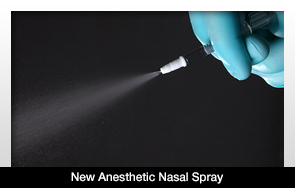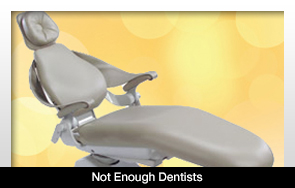Written by Dentistry TodayTuesday, 25 June 2013 15:16
 |
Those anesthetic injections for dental procedures may become a thing of the past.
A new anesthetic nasal spray is currently undergoing clinical trials. If proven to be successful, it may be used instead of lidocaine injections.
The information from the study appeared on the Internet and will be published in the July issue of the Journal of Dental Research. The next phase of the trial included 45 adults and the final phase was concluded as the study was awaiting publication.
The second and third phases were considered successful and the spray may soon be approved by the Food and Drug Administration. It’s conceivable that the drug becomes available in the next year.
The drug was created and developed by St. Renatus and is called Kovocaine Mist. The amount of anesthesia is equivalent to that of a lidocaine injection. It could be extremely helpful for patients who refuse to visit the dentist based on a fear of needles.
The spray possesses tetracaine and oxymetazoline hydrochloride, a decongestant that lowers inflammation and bleeding. The formula comes from medicine used by ear, nose and throat doctors.
